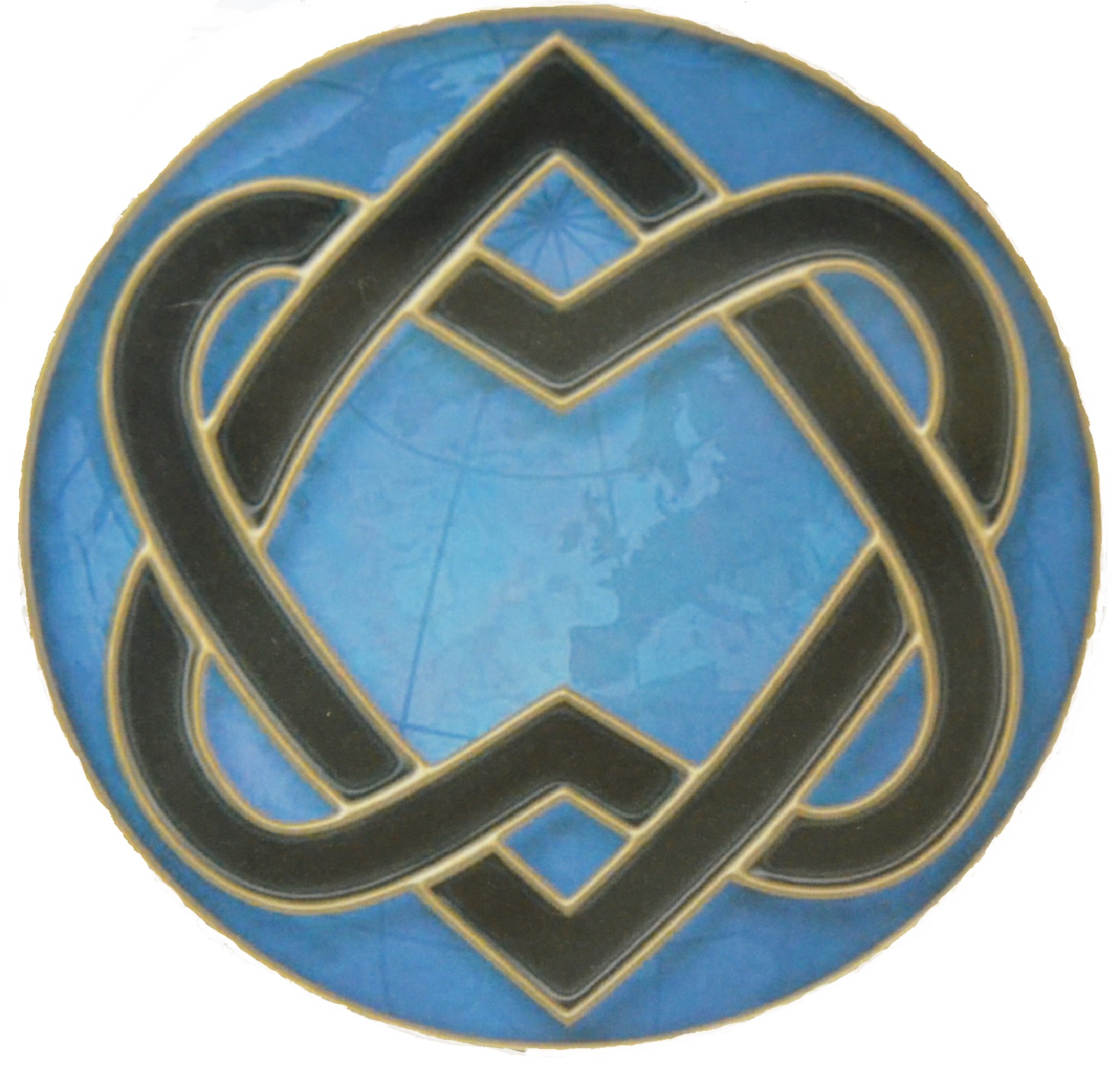Episodes

Sunday Sep 22, 2019
Judaism and Buddhism: Enlightenment, Nirvana, and Shabbat
Sunday Sep 22, 2019
Sunday Sep 22, 2019
This is a summary lecture from a lecture series I did in Ann Arbor on Judaism and Buddhism: Examining Jewish Mysticism and Philosophy through the 4 Noble Truths. What if we understand "revelation" as "enlightenment" rather than miraculous supernatural dictation (which is, after all, a thoroughly incoherent concept)? What if the entire "teaching" (Torah) of Shabbat has to do with bringing enlightenment to the masses?

Sunday Jun 09, 2019
Sunday Jun 09, 2019
A lecture in which I present the thesis of Richard Elliott Friedman's book on Exodus, which focuses on the two most ancient parts of the Torah (the Song of the Sea and the Song of Deborah), the historical trends in Biblical archaeology and criticism, and why the Torah could well be a story of two long lost parts of the Hebrew family tree coming together in Israel, possibly under a female leader. The theme reflects the issues of our time: overcoming tribalism to have a national vision based on values, and (surprisingly?) those values/Torah coming from those refugee cousins newly in the Land.
I've made an optional source-sheet of Biblical texts to go with this lecture. See:

Sunday Nov 11, 2018
Sunday Nov 11, 2018
If you were a literary critic analyzing the evening prayers, you would have to note how often the trope of going to bed and waking up is repeated: Ahavat Olam before Shema, VeAhavta and VeHaya Im-Shmo'a after Shema, Hashkiveinu, and then Barukh Adonai Bayom 'VaLayla on Weekdays or the Shabbat Psalm on Friday night. Wow: for a twelve minute service, you've prayed about going to sleep and waking up five times!) What is this all about? And why is the most commonly studied volume of Talmud, Berakhot ("Blessings"), concerned greatly about the timing of nighttime and morning prayers as well? In this podcast, I connect all of these with reflections about the psycho-physiological aspects of falling asleep and waking up, including theories about the function of prayer and a recent study on when one should be waking up. I conclude with a very practical exercise for improving one's spiritual and physical health.

Tuesday Jul 10, 2018
The Ten Commandments as Your Path to Encounter God Directly
Tuesday Jul 10, 2018
Tuesday Jul 10, 2018
We all know that the Ten Commandments are important, and many of us know that there's some way they're different from other "commandments," but we rarely get to the heart of the matter. In this spontaneous presentation (and hence inferior audio quality), I try to convey exactly what this difference is, and why the Ten Commandments are truly a unique spiritual path of immediate connection to God's presence. In addition to using real-world examples from my own life, I also explain the importance of Rabbi Abraham Joshua's theology without the typical poeticizing or trivialization of it. We experience God at our own Sinai, no different from our ancestors, and yet we often walk away from our connection to God. Why? I try to explain in this very personal podcast.

Monday Feb 26, 2018
Monday Feb 26, 2018
A question to the Rabbi: What is the literal translation of the first three words of the Hebrew Bible? Why so some translations say, "in the beginning, God created..." and some say "In the beginning of God's creating..." and what's the difference? A short piece of Torah study...

Wednesday Jan 10, 2018
Why Doesn't God Build Up Moses' Self-Esteem? A Discussion about God and about Parenting
Wednesday Jan 10, 2018
Wednesday Jan 10, 2018
As some of my recent podcasts have been lectures, I decided to mix it up by sharing a Torah discussion in which I raise a simple question asked by Mechon Hadar's Dena Weiss: At the Burning Bush, when Moses is too humble or scared to accept his mission, and Moses asks God, "Who am I to go to Pharoah?" why doesn't God say, "You're the one who killed an Egyptian to save a Hebrew from being beaten! You're the one who, with no backup or support, took on a large group of male shepherds to stop them harrassing the girl shepherds! You're the one who has made a life in a foreign land all on your own! You're the one born with supreme gifts!?" I ask our group, "If you had a child, wouldn't you point out how successful they've been in the past, that they have natural gifts and talents, and boost their self-esteem? Why does God handle it so differently?" As usual, I've edited out all participant answers (since they were not near the automatic microphone) but I've given summaries of each wonderful answer. (Note that several children participated actively! Wish you could have been there!)

Friday Jan 05, 2018
Friday Jan 05, 2018
This is my lecture to the World Affairs Club where they assigned me to present on the Influence of the Abrahamic Religion of Judaism on World Affairs as the first of a three part series on the influence of the Abrahamic religions. While the topic is problematic (how does "religion" cause "history?"), I address the essentials of Judaism, focus especially on the rise of fundamentalism in the last twenty years as a result of the internet, and consider how fundamentalism itself is a "modern movement with an anti-modern rhetoric." I also look at how seeing religion as the cause of, say, terrorism, fails to see the geopolitical context that leads to this phenomenon. I apologize for my voice fading when I faced the Powerpoint slides on the screen [and I am happy to share the Powerpoint with you --just email me]. I did not include the 1 hour Q&A session afterward in which I addressed the U.S. endorsement of Jerusalem as Israel's capital, my polemic against the Anti-Semitic and destructive BDS movement, the Arab-Israeli peace process, and whether the world would be better off without theism entirely. If you want the slides, just contact me and I'll send you the PDF.

Friday Nov 17, 2017
Friday Nov 17, 2017
"And because (Abraham) had a faithfulness in God, He reckoned it to him as righteousness." Few lines in Torah have done more theological mischief than this verse of five Hebrew words in Genesis. Is it really the essense of "Abrahamic faith" that "Judaism, Islam, and Christianity all share?" Or is the latter an imposition on the text to suit personal motives? Is Abraham's faith about obedience, or about being the first to have the correct theology [though it seemed Noah had that], or about something else? How is his "faith" connected to the rest of his life, whether setting out on a risky self-made future, creating various covenants and negotiations, going to war, or offering his son Isaac as a potential sacrifice? And what is his "religion" if he doesn't have Revelation yet and so isn't doing mitzvot? In this Torah study [with questions edited out], we bring the perspective of scholars like Jon Levenson (Harvard) to enlighten what these words mean, what a "promissory faith" is, and how it applies to our lives today.

Tuesday Aug 22, 2017
Kabbalah, the Amidah prayer, and the Spiritual Progression of Shabbat
Tuesday Aug 22, 2017
Tuesday Aug 22, 2017
If you can, download the KABBALAH & AMIDAH PDF and refer to it. It's a three part folio I created that uses color to track Kabbalistically significant parts of the Shabbat Amidah prayers, and shows the progression of God sefirot/attributes/emanations on Shabbat.
In this presentation, I look at the Amidah, called "The Prayer" (ha-tefillah) in the Talmud, in its evolving Shabbat version. This Amidah is an enigma inside of an enigma, a silent meditation inside of a public pronouncement, a fixed prayer which suddenly changes (in a revealed yet concealed way) on Shabbat. Full of Kabbalistically significant references, I trace a mystical, cosmic progression that accompanies each and every Shabbat, from free-flowing Chesed Shabbat evening with a focus on Nature, intoxication, forgiveness,love, blessing, and the home, through Revelation/Power/Law/Direction/Distinction/Path on Shabbat morning, to Redemption/Balance/Wholeness/Oneness/Renewal Shabbat afternoon.

Monday Aug 14, 2017
The Pre-Talmudic Temple Spirituality of Conditional and Unconditional Vows
Monday Aug 14, 2017
Monday Aug 14, 2017
Aren't New Year's Resolutions some kind of recent thing? Well, actually, resolution vows are a central part of the Temple offerings, and are expected to play a major role in your High Holiday prayers and spiritual work leading up to the shofar blast ending Yom Kippur. We know why the Talmud played them down, but maybe we play them down today for another reason altogether: namely, they don't fit with modern conceptions of "spiritual." But that's where we are completely mistaken: the core Shema spirituality of loving God with our "me'od," our excess, as the proper reciprocal response to Blessing, relies on being open and clear about the role money, good fortune, and our own wishes and desires play in our lives.

